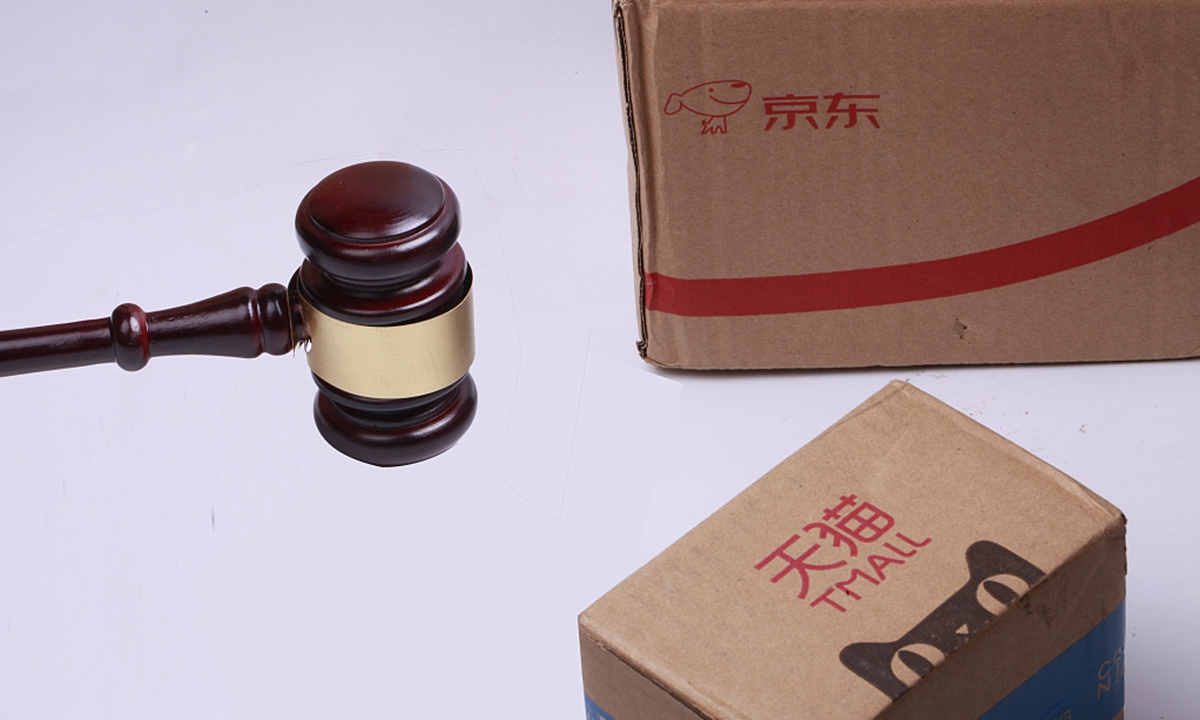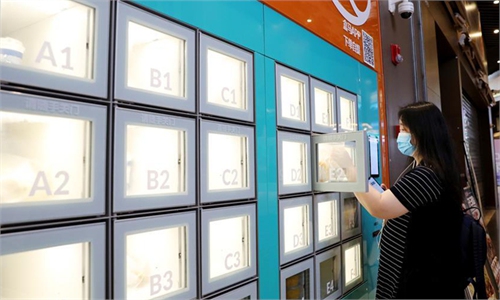SOURCE / MARKETS
China fines three top e-commerce platforms for false promotions

Photo: VCG

Photo: VCG
China's top market regulator issued fines of 500,000 yuan ($76,627) to three e-commence platforms for false promotions during the Double 11 online shopping spree.
China’s State Administration for Market Regulation (SAMR), the country's top market regulator, announced the fines on Wednesday night, with 500,000 yuan being the maximum allowed under China’s price law.
The three platforms, JD.com, Tmall and Vipshop were fined following consumers' allegations that the platforms raised prices first before giving "discounts" during online shopping promotions on November 11.
In its statements, the SAMR gave a detailed account involving dozens of cases on how the three platforms violated relevant regulations governing pricing of goods ranging from home appliances to cosmetics.
The fines were imposed as China tightens its scrutiny to big e-commerce platforms with the just-concluded Central Economic Work Conference stressing that strengthening anti-monopoly rules and preventing the disorderly expansion of capital as among the top priorities for 2021.
Alibaba, which operates Tmall, was put under a separate investigation over suspected monopolistic acts including forcing merchants to choose one platform between two competitors last week.
Earlier in November, China's market regulator has released draft anti-monopoly rules related to the internet economy to strengthen supervision of the country's large online service platforms.
The fines are to be paid in 15 days and companies can file for a review of the ruling.
Alibaba and JD.com snatched around $115 billion in sales across their platforms during the Double 11 shopping event, both setting new records, according to media reports.
Alibaba said its total gross merchandise value over the 11-day period online shopping spree, hit 498.2 billion yuan, nearly doubling 2019’s 268.4 billion yuan.
Meanwhile, JD.com grabbed 271.5 billion yuan in sales, compared with the 204.4 billion yuan in 2019.
Global Times

